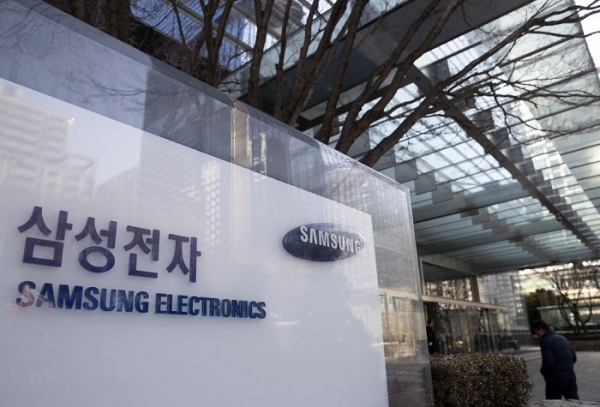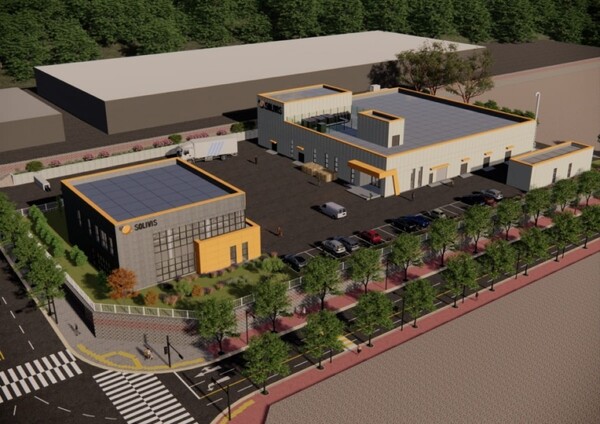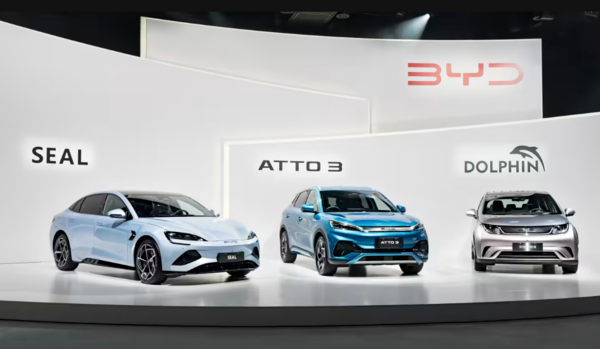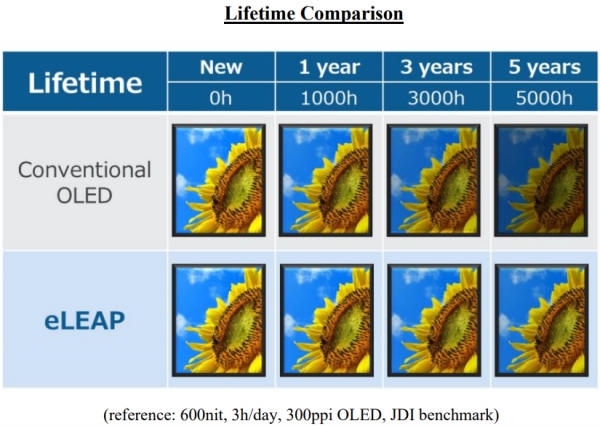“Trump pushes for semiconductor subsidy renegotiation”… Samsung and SK ‘fire on their feet’

According to Reuters, the White House plans to revisit the semiconductor law finalized by the Biden administration and renegotiate some deals. “President Trump is concerned about the $39 billion semiconductor and science law industry subsidy provisions,” a White House source said, Reuters reported.
It is unclear exactly how much the White House plans to change the grant contract, what actions it has already taken or what decisions it will make on agreements that have already been finalized, the news agency said. The White House and the U.S. Commerce Department have not yet responded to requests for comment, Reuters added.
President Trump repeatedly expressed his negative stance on semiconductor subsidies during last year’s presidential campaign.
Semiconductor design company ARM to manufacture AI chips directly, challenging Nvidia
The British Financial Times (FT) reported on the 13th (local time) that ARM plans to introduce its own AI-dedicated chip this year.
The FT, citing sources, reported that ARM is planning to unveil its first self-made chip as early as this summer. The FT added that the first customer will be Facebook’s parent company Meta, which has pre-ordered ARM’s chips.
ARM has been excluded from the boom enjoyed by chip manufacturers despite the AI craze because it indirectly generates revenue through technology licensing fees and royalties for its chips. In this situation, ARM appears to have jumped directly into the AI-specific chip market with the goal of solving the global chip shortage and achieving growth.
Malaysian powerhouse OCI launches semiconductor materials business
OCI Holdings is accelerating its Malaysian business by changing the name of OCIM (OCI Malaysia) to OCI TerraSus (OCI TerraSus). OCI TerraSus will start a polysilicon business for semiconductors, and OCI Kumho will produce ECH (epichlorohydrin) in Malaysia starting next year. It also hired a Malaysian national as the head of the Malaysian regional headquarters.
According to OCI Holdings on the 10th, OCIM recently changed its name to OCI Terrasus. OCI entered Malaysia in 2017 by acquiring 100% of Tokuyama’s Malaysian corporation. After the acquisition, the company name was changed to OCIM.
OCI Holdings is growing OCI Terrasus into a global chemical company that produces semiconductor materials, ECH, and CA (chlor-alkali), focusing on solar energy materials.
Chemtronics Starts Regeneration of Semiconductor Glass Substrates and Wafers… “Creating Synergy with Acquired J3”
On the 12th, Chemtronics announced that it had completed the acquisition of J3 through its subsidiary Regenix.
Semiconductor wafers are the raw materials that are absolutely necessary when making chips. Recycled wafers are products that have been processed from discarded wafers to the same quality as new products, and chip manufacturers such as Samsung Electronics and SK Hynix mainly use them for research and development (R&D). As the artificial intelligence (AI) and semiconductor industries are expanding, this market is also expected to expand rapidly.
The acquisition of J3 is also aimed at strengthening Chemtronics’ new glass substrate business. Chemtronics’ main business is display etching, but recently, in order to diversify its sales, it has been focusing on commercializing glass substrates, which are called the “dream substrates” in the semiconductor industry.
“Meta Discusses Acquisition of Korean AI Chip Design Startup ‘FuriosaAI’”
Facebook’s parent company Meta Platform (hereafter, Meta) is discussing the acquisition of Furiosa AI, a Korean artificial intelligence (AI) chip design startup, Forbes reported on the 11th (local time). Citing sources, Forbes reported this, saying that acquisition discussions could be concluded as early as this month.
FuriosaAI is a fabless (semiconductor design company) startup that develops semiconductors specialized for AI inference operations for data center servers. It was founded in 2017 by CEO Baek Jun-ho, who is a former engineer at Samsung Electronics and the U.S. semiconductor company AMD.
Telechips, Wind River of the US, Strengthen Automotive SoC Security… “Already Applied to Mass Production”
On the afternoon of the 11th, Telechips and Wind River signed a partnership agreement for the development of next-generation software-defined vehicles (SDVs) at Telechips’ Pangyo office building.
The partnership between the two companies will be implemented in various areas such as in-vehicle infotainment (IVI), advanced driver assistance systems (ADAS), and digital cockpits. The main goal is to provide Wind River’s system safety and security software together with Telechips’ various automotive SoC (system-on-chip) products.
“Our collaboration with Wind River began a year ago in the cybersecurity field,” said CEO Lee Jang-gyu. “We are currently discussing ways to expand our solutions to infotainment, network gateways, ADAS, and more in the future.”
Goyoung Technology Establishes Taiwan Corporation… “Attracting Semiconductor Customers”
Goyoung Technology announced on the 10th that it has established a local corporation to strengthen its presence in the Taiwanese market.
Taiwan is home to fabless design companies and post-processing companies, including TSMC, a global foundry leader, and the company plans to expand its market influence with a localized strategy.
Goyoung Technology has appointed Shu Ruifeng as the new Taiwan Branch Manager. Shu Ruifeng is a semiconductor expert with 30 years of experience at Applied Materials Taiwan and Ontu Innovation.
Last year, 6.01 million electric vehicles were registered outside of China, up 6.1%… BYD up 125%
Last year, the number of electric vehicles registered worldwide, excluding China, exceeded 6 million.
While sales of leaders such as Tesla in first place and Stellantis Group in fourth place declined, the rapid growth of Chinese brands such as BYD stood out.
According to SNE Research, an energy market research firm, on the 14th, the number of electric vehicles (including plug-in hybrid vehicles) registered in 80 countries outside of China last year was 6.01 million, up 6.1% year-on-year.
SK Enmove Obtains International Certification for Next-Generation Refrigerant for Vehicles… Specializing in Electric Vehicle Heating and Cooling
SK Enmove announced on the 12th that it has developed a next-generation refrigerant for vehicles that improves heating and cooling efficiency and has obtained international certification.
SK Enmove has acquired the R-Number, an international refrigerant certification, from the American Society of Heating, Refrigerating, and Air-Conditioning Engineers (ASHRAE) for two of its self-developed next-generation refrigerant products. The R-Number is a certification granted by the American Society of Heating, Refrigerating, and Air-Conditioning Engineers (ASHRAE) after comprehensively reviewing the material characteristics of refrigerants, including safety and efficiency. SK Enmove also acquired the R-Number for one refrigerant product in June of last year. Up to this certification, a total of three products have received the R-Number certification.
SK Enmove has signed a business agreement with Hyundai Motor Group and has been developing a next-generation refrigerant for vehicles that increases cooling and heating performance by more than 30%.
Battery joint ventures disband one after another… Electric vehicle slump, Trump risk impact
POSCO Holdings announced on the 11th that it had withdrawn its plan to build a nickel refinery plant with a Chinese company. POSCO Future M, a secondary battery materials affiliate, also canceled its investment plan for a joint venture to build a precursor production and nickel smelting plant with China’s Huayou Cobalt worth 1.2 trillion won in September last year.
Ecopro Materials also canceled the establishment of a joint venture (pCAM JV) for producing precursors for secondary batteries in December last year, and LG Energy Solution also canceled its plan to establish a joint venture for batteries in Turkey with Ford in 2023.
This is a phenomenon resulting from the slowdown in the electric vehicle market, which began in earnest in the second half of 2023, lasting longer than companies expected.
EcoPro, the more you sell, the more you lose… Even bad inventory has been added
EcoPro, the holding company of EcoPro Group, announced on the 11th that it recorded sales of 3.1103 trillion won and an operating loss of 314.5 billion won on a consolidated basis last year. As sales plunged 57.2% year-on-year, operating profit also turned into a deficit.
In particular, EcoPro’s cost of sales last year was 3.2039 trillion won, which was more than its sales. This means that the more it sold, the more it lost.
Profitability also worsened due to ‘reverse lagging’. This means that raw lithium was purchased at a high price and finished cathode materials were sold at a low price. Normally, cathode material companies and battery manufacturers set product prices based on the metal price at the time of sale, but lithium prices in the second half of last year fell by about 30% compared to the beginning of the year.
DNT “Achieves Best Performance Since Entering Secondary Battery Business”
DNT announced on the 13th that its consolidated operating profit last year was 6 billion won, a 244.5% increase over the previous year.
During the same period, sales and net profit increased by 14.9% and 1,809.1% to KRW 146.4 billion and KRW 19.4 billion, respectively. The company explained that despite external factors such as the temporary stagnation of demand (chasm) in the electric vehicle market, it achieved its best performance ever since entering the secondary battery business.
DENT has already received high evaluations in the market for its laser notching equipment specialized for existing pouch-type batteries, and is currently in the final stages of development that can be applied to square batteries. Based on this, it is expected to begin receiving new orders for laser notching equipment for square batteries in the future.
US Republican Party: “Eliminate Electric Car Subsidies and Raise Taxes”
The US Republican Party has proposed a bill that would eliminate the $7,500 credit provided to electric vehicle purchasers under the Inflation Reduction Act (IRA) and impose an additional $1,000 tax.
Electric vehicle media outlet Electrek reported on the 13th (local time) that 14 senators, including Republican Senator John Barrasso, jointly introduced bills with similar content.
The elimination of the electric vehicle purchase tax credit in the IRA is an issue that President Donald Trump has been talking about since immediately after being elected. It includes the elimination of the $4,000 tax credit for used electric vehicles in addition to new vehicles, as well as the tax credit for electric vehicle charging stations. The elimination date is specified as 30 days after the bill is signed.
Solid-state battery material company Solibis attracts 12.4 billion won in investment

Solibis, an all-solid-state material specialist with solid electrolyte source technology and mass production process technology, announced on the 12th that it had attracted a bridge investment of 12.4 billion won. This is only one year after attracting a Series B investment of 20 billion won in February of last year. With this investment, Solibis’ cumulative investment has exceeded 40 billion won.
Solibis, which has completed attracting bridge investment, plans to focus on installing mass production facilities and preparing for mass production at its Hoengseong plant in Gangwon Province, which is scheduled to be completed in the second quarter of this year. Once the Hoengseong plant is completed, Solibis will have an annual production capacity of 40 tons.
‘Solivis Solid Electrolyte’ is a solid electrolyte that Solivis applied the 3rd generation wet synthesis mass production platform. It shows the highest ionic conductivity among all the academic research and tests known to date.
Hyundai Mobis prepares for the autonomous driving era with moving speakers
Hyundai Mobis announced on the 12th that it has developed a ‘moving speaker’ system that rotates in sync with the movement of a vehicle display. When the display is fully expanded in autonomous driving mode, the speaker also changes its angle accordingly to deliver optimal sound.
Two years ago, Hyundai Mobis developed the world’s first variable (rollable) vehicle display. In autonomous driving mode, the 30-inch display expands to its maximum size so that you can enjoy content. At this time, the moving speaker lies down and transmits sound toward the windshield. This is to prevent sound transmission interference caused by the large expanded display.
FortyDot Signs MOU for Qatar Smart City Project… Leading Innovation in Mobility Based on Autonomous Driving
FortiDot is pushing ahead with its Qatar Smart City project in earnest. Mobility AI company FortiDot announced on the 10th that it signed a ‘MOU for cooperation on the Qatar Smart City project’ with Qatar Protocol Capital Group at its headquarters in Pangyo, Seongnam-si, Gyeonggi-do in January.
Through this agreement, the two companies plan to strengthen cooperation to demonstrate smart city solutions and autonomous driving-based robotaxi services in downtown Qatar and to build smart cities through mobility innovation.
BYD “Cars worth 30 million won also equipped with autonomous driving”

BYD, China’s largest electric car maker, has announced that it will equip all of its vehicles with cutting-edge autonomous driving systems.
Wang Chuanfu, chairman of BYD, introduced BYD’s cutting-edge autonomous driving system, “God’sEye,” at its headquarters in Shenzhen, China on the 10th (local time), saying, “It can drive autonomously for over 1,000 km without driver intervention, and its parking success rate is 99%.”
He continued, “Gods-Eye will open a new era in which all customers can access smart driving,” adding, “It is the result of 5,000 engineers’ hard work over the past seven years.” This year, Gods-Eye is expected to be installed in 15 million new vehicles, which is two-thirds of BYD’s nationwide sales.
Etiforce, ‘5G-V2X Modem Chipset’ Selected as 5GAA 6th News
Etiforce announced on the 11th that the ‘development of 5G-V2X (vehicle-to-everything) modem chipset’ was selected as one of the six news items to watch in the related industry in the fourth quarter of last year at the 33rd General Assembly of the 5GAA held in Washington D.C., USA.
5GAA is a global organization developing future mobility and transportation service solutions centered on C-V2X technology.
Etiforce is a V2X communication technology startup that has commercialized the world’s first 5G-V2X solution. Last year, Etiforce completed a Series A investment of KRW 8.5 billion with the investment lead of LB Investment, participation in the investment of the Korea Development Bank to foster startups with core technologies, and participation of L&S Venture Capital and BNK Venture Investment. It is currently in the process of attracting Series B investment.
Autocrypt and Hitachi Solutions Launch Vehicle Security Testing Solution in Japan
AUTOCRYPT, a global future vehicle software company, announced on the 10th that it has signed a sales agency agreement with Hitachi Solutions of Japan and will be launching ‘AUTOCRYPT Security Fuzzer’ in the Japanese market. Accordingly, AUTOCRYPT Security Fuzzer will be commercialized for the first time in Japan.
Autocrypt signed a business agreement with Hitachi Solutions in 2024 to provide vehicle and V2X (Vehicle-to-Everything) security solutions and services to the Japanese automobile industry. It is known that Hitachi Solutions concluded this agreement after determining that Autocrypt’s technology was the optimal solution to meet the security requirements of the Japanese automobile industry during the collaboration. Hitachi Solutions is a company that leads digital technology in the Hitachi Group and provides solutions to various industries.
JDI, Non-FMM OLED Self-Production Abandoned… “Mobarafab Production to End in March 2026”

Japan Display (JDI) will stop manufacturing organic light-emitting diodes (OLEDs) that do not use fine metal masks (FMMs). Instead, it will operate in a form of outsourcing production to foundries, and strategically shift its display business to semiconductor packaging and sensor businesses.
JDI recently announced that it will cease production at its Mobara plant in March 2026 and convert it into an artificial intelligence (AI) data center. It explained that this is part of a strategic shift from the display business to the semiconductor packaging and sensor businesses.
The Mobara plant is home to JDI’s 6th generation LCD and OLED production lines. JDI had planned to build an OLED production line here using the new deposition technology “eLEAP” that does not use FMM, and to launch and mass produce 32-inch automotive displays from the end of last year. However, the mass production schedule was postponed to after March of this year.
EM&I, operating profit and net profit turned to black last year
EM&I, an organic light-emitting diode (OLED) material company, announced on the 13th that its consolidated sales last year increased by 12.88% year-on-year to KRW 29.7 billion. During the same period, its operating profit and net profit turned to a surplus of KRW 300 million and KRW 1.6 billion, respectively.
The company explained that the performance growth was driven by favorable business conditions such as the expansion of OLED adoption in mobile devices including smartphones and tablets. The company plans to continue its good performance in the future by establishing structural profitability through business unit efficiency improvement.
“China’s Mini LED TV Offensive… Concerns Over OLED Market Crisis”
Lee Chung-hoon, CEO of market research firm Ubi Research, predicted at the ‘Ubi Research 2025 First Half Seminar’ held at the Korea Science and Technology Convention Center in Gangnam-gu, Seoul on the 14th that the global OLED TV market could face a crisis due to the onslaught of mini LED TVs.
“Korean set makers are likely to focus on expanding the large mini LED TV market rather than OLED TVs to respond to China,” the representative said.
Mini LED TV is a type of liquid crystal display (LCD) TV that is classified as a premium product along with OLED due to its excellent picture quality and brightness performance.
Source: kipost.net
